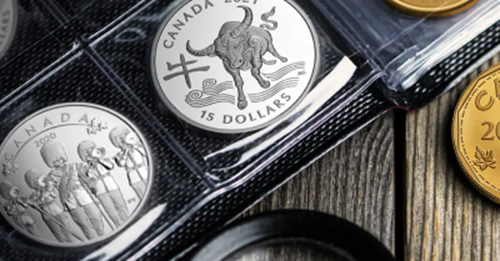The legacy collection: Passing down the passion
- Dec 21, 2021
- Learn
- 5 MINUTES READ
Legacy. That word comes up a lot, and for those who have a sense or love of history, it truly matters: it’s the closest we come to achieving immortality, our way of leaving a mark on the world and ensuring that we’ll be remembered.
Legacy building is often cited as the great motivator behind many collections, and while nobody wants to be reminded of their own mortality, some scenario planning is required—whether your coins are high in dollar or sentimental value.
If you’ve taken the time to amass and curate a legacy collection, you will want to make sure your future gift will be viewed as a benefit rather than a burden. And given how much you treasure them today, it will be comforting to know that your collectibles will be appreciated for years to come.
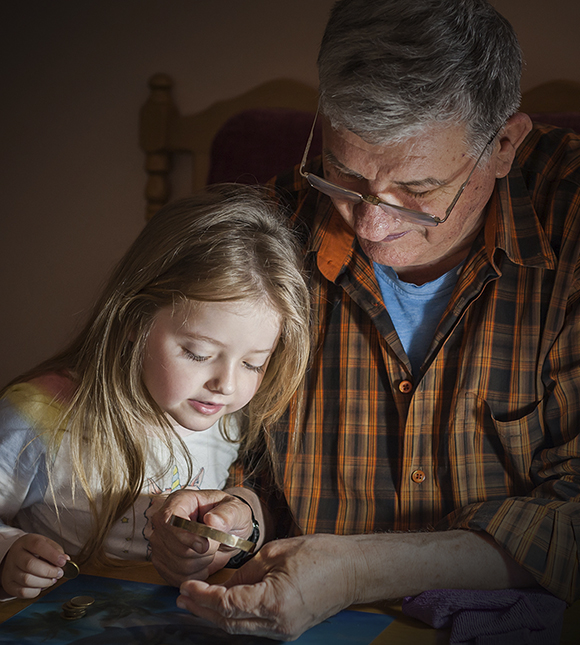

Legacy. That word comes up a lot, and for those who have a sense or love of history, it truly matters: it’s the closest we come to achieving immortality, our way of leaving a mark on the world and ensuring that we’ll be remembered.
Legacy building is often cited as the great motivator behind many collections, and while nobody wants to be reminded of their own mortality, some scenario planning is required—whether your coins are high in dollar or sentimental value.
If you’ve taken the time to amass and curate a legacy collection, you will want to make sure your future gift will be viewed as a benefit rather than a burden. And given how much you treasure them today, it will be comforting to know that your collectibles will be appreciated for years to come.
Choosing the next keeper of the coins
One of the biggest decisions involved in any legacy is selecting the right steward.
Ideally, you will want to leave your collection to someone with an interest in coin collecting and the time and space to pursue it—perhaps a child or grandchild who has shown interest in a few pieces, or a close friend who shares your enthusiasm for a theme. But if there are numerous “heirs” rather than one “heir apparent,” you may need to consider whether your collection should be kept intact or divided.
Whatever you decide, be sure to leave clear written instructions on how you want your prized collection, your legacy, to be handled and cared for after you’re gone.

Make a list (and check it twice)
It’s not just your coins that need to be passed down: you have years of numismatic knowledge and experience to transfer, too.
Even if your heir(s) expressed an interest in coins, they might not know about proper storage, coin handling and other collecting dos and don’ts. Some topics, such as coin grading, can seem daunting at first, so consider writing out some instructions and tips on finding good resources to ensure your collection will be in good (and gloved) hands.
There are countless stories of people who have inherited coins without knowing or understanding what they have. For them, it becomes a burden just to identify each piece, let alone understand where it fits in the collection and on the secondary market. That’s where an inventory, whether on paper or saved on a memory card, can be a big timesaver.
A list of all your coins is the soundest foundation for your legacy collection. The next person will begin their journey already knowing which coins they possess and which ones are needed to complete a series. There are more practical reasons, too: a checklist makes it easier to estimate the value of your collection (that’s important in case of a dispute); and if your collection is an especially valuable one, you’ve provided a record of it for insurance purposes.
Need help with this task? There are inventory log books and specialized software or apps that can be purchased, or you can download a free spreadsheet coin inventory template online—find one that works for you, or use it to create a customized one. Feel free to add as much information as you’d like about each piece, but here is some key information that should be included: the country and year of issue; the issuing mint; coin denomination; coin type or series; grade or condition; quantity; purchase date and price (to help track value fluctuations); and any additional notes or comments that will help your heir(s) get acquainted with the prized pieces now in their possession.
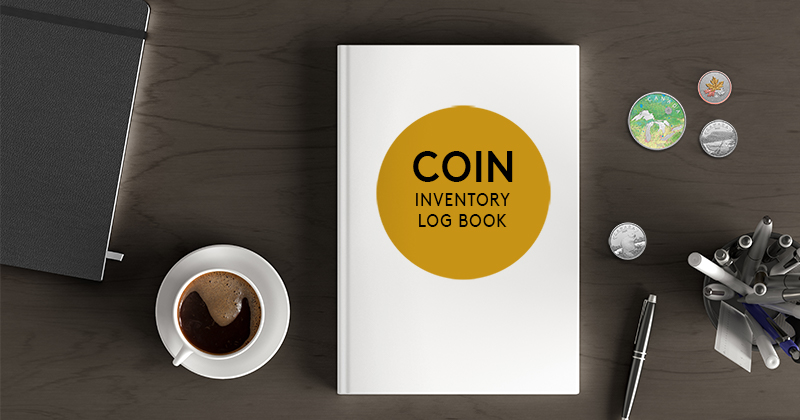
Share the stories that connect the past, present and future
Finally, there’s a story behind every coin but there’s also your story, the tale of how this piece came to be in your care.
Maybe it’s a funny anecdote about how you found it, an interesting explanation regarding its design or creation, or perhaps a heartwarming story about how it inspired your love for numismatics. Write it down; better yet, record a video—it allows you to tell the story in your own word, and it also gives future viewers an opportunity to hear and know you.
A legacy collection is an opportunity to keep those stories alive, and to spark the same passion and interest in someone you love. These coins are, and continue to be, part of your life, and choosing the future steward of both your coins and your stories is no small thing. So share the memories, share your interest—they may be the greatest heritage you leave behind.
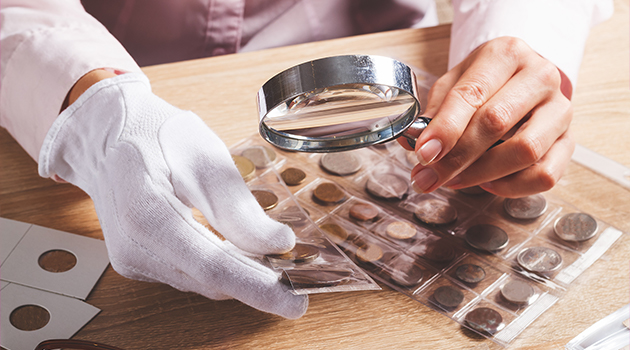

I’ve inherited a coin collection… now what?
An inherited coin collection is an unexpected gift that often reveals something about its owner and their interests. It may also seem like you’re stepping into a whole new world, and if you’re not already familiar with numismatics (the study or collection of coins), managing your collection may seem like a daunting task.
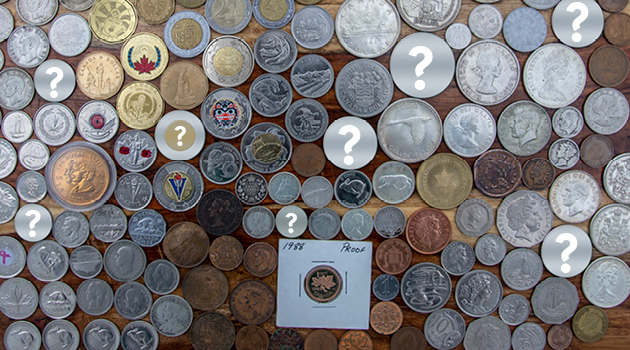

Collecting Strategies for New Coin Collectors
Building a collection can be overwhelming for new collectors. With so many choices out there, where do you even start? What’s the best way to build the perfect collection?
First off, there is no such thing as “the best way” to build a collection. To each their own. You will find that all collectors have their own strategy, so there is no right or wrong way, but there are tips that can help. Here are a few for you.
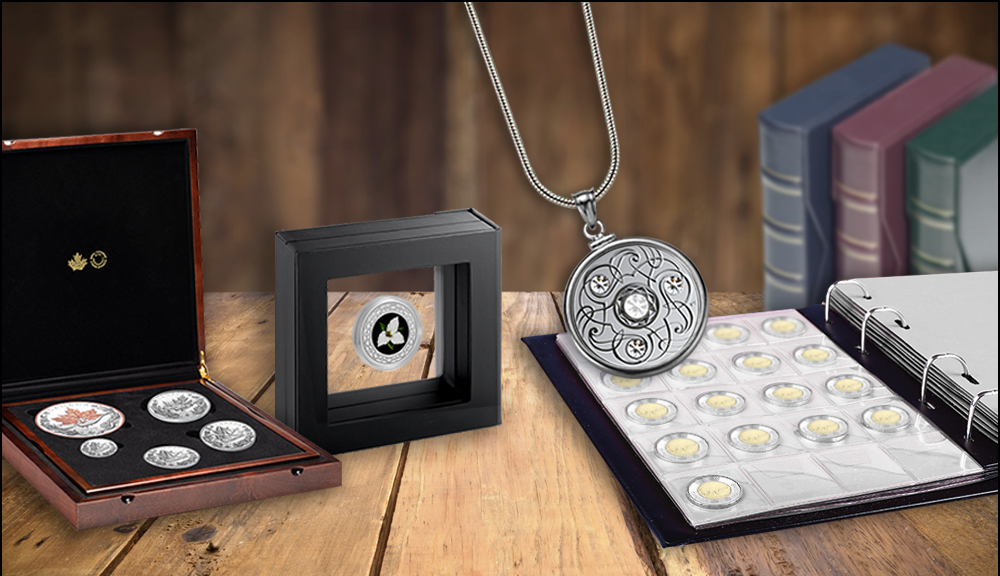

What's the best way to store your coins?
Oil, dirt and even just plain air can damage coin finishes. So can humidity and temperature extremes. If you want to keep your collection in “mint” condition (pun intended), what’s the best way to do it? The answer can depend on your priorities. Are you looking to preserve your coins as investments or do you want to be able to look at and display them?


